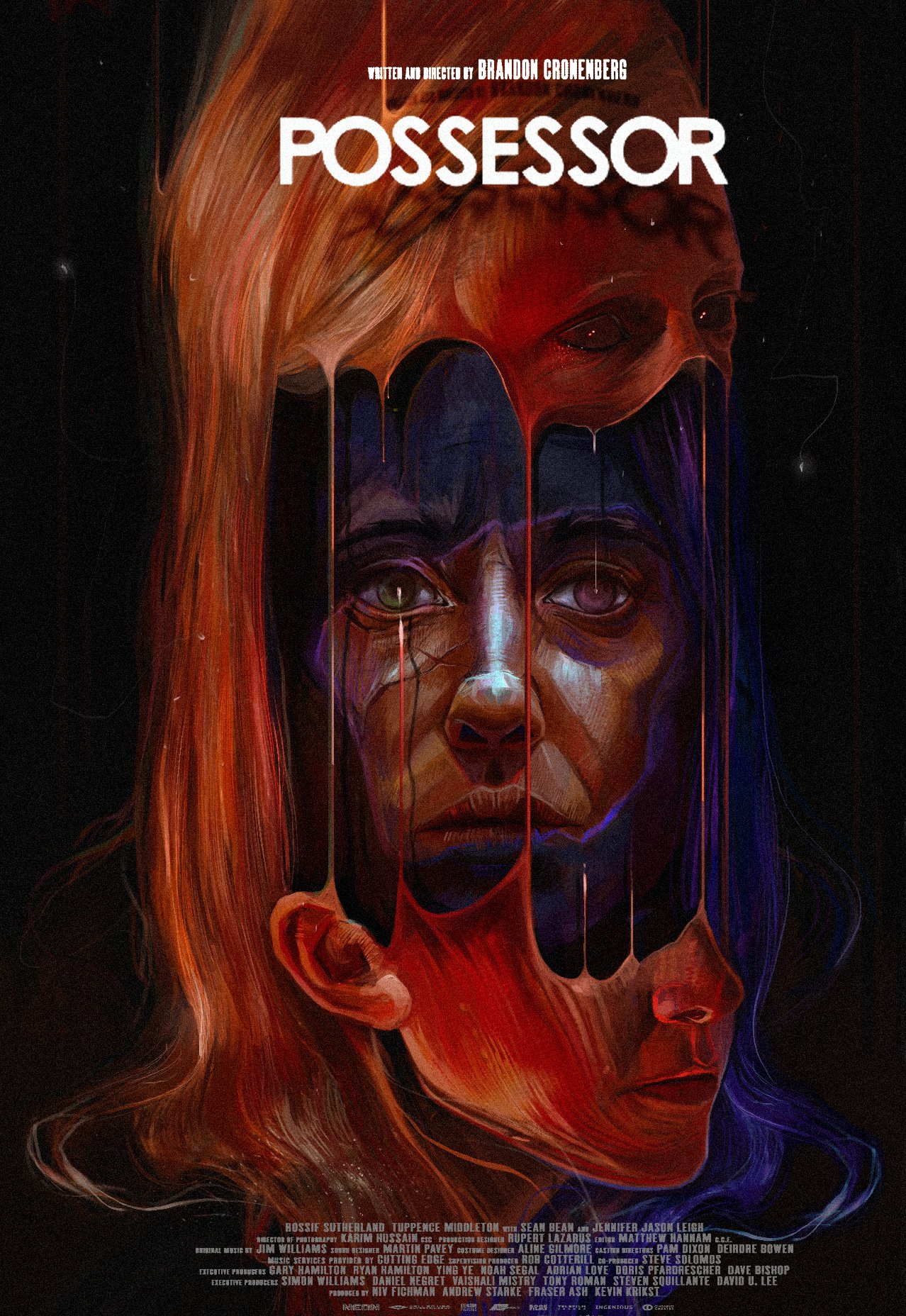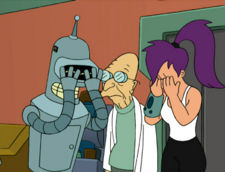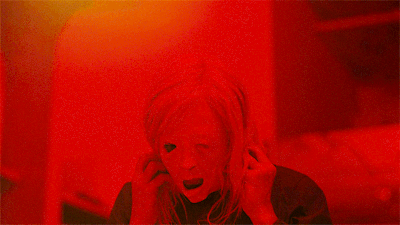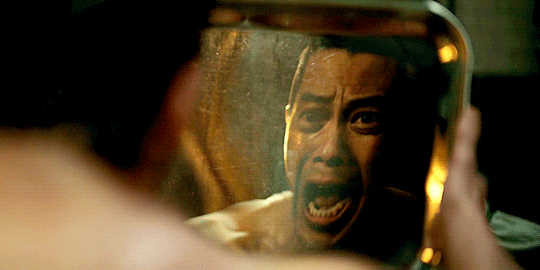Our visual media of the week, Possessor and Futurama‘s “I Second that Emotion”, explore the topic of empathy. However, it shows empathy in a way that the average person may find unsettling. Empathy is expressed in a manner that is forced or curated, not natural. How far does the mask of empathy go?

Possessor
In Possessor, empathy is a rather disturbing topic. Our main character, Tasya Vos, is arguably unable to feel the emotion or characteristics of others without observation. She is the opposite of our module’s discussion of direct perception: when you can feel how another is feeling without interpretation. Vos plays people (including herself) like characters in order to get into their mindset. Early on in the film, Vos talks to Girder about the assassination of Elio Mazza. Girder asks, “Why stab Elio Mazza. You were provided with a pistol.” Vos answers, “Well maybe it just seemed more in character.” Girder replies, “Whose character?” Vos doesn’t provide an answer to this question. The way Vos views herself as being “in character” implies that she cannot directly feel emotion.
There is another account in the film that exhibits the idea of playing a character. Vos observes Colin Tate with his fiancée Ava through a camera with a large lens. Colin says things such as, “I don’t think there’s any left” and “You wanna get dinner?” In this scene, we can see Vos copy his mannerisms to emulate his character before she must take over his cognition. She repeats the lines multiple times to perfect them. We come to a close-up shot of her face as she copies the words, “Let’s just go walk and find somewhere.” She closes her eyes and repeats it to herself as if she is trying to memorize it. She is like an actress practicing her lines. She cannot naturally feel what Colin is feeling.

Part of what makes us human is our emotion affected by the experiences of others’ and our own. Vos doesn’t quite have this. If anything, she is robotic. She can be compared to the concept of cybernetics. Kind of like how AI uses the information around it to learn, she does the same in order to play her characters. She stores the information in her mind for later use.
Futurama
The way empathy is showcased in Futurama‘s episode
“I Second that Emotion” is not disturbing, but we are dealing with another character that has a lack of natural empathy. Without the empathy chip that is attached to Bender by Professor Farnsworth, he cannot feel any of the emotion that radiates from others.
Before the empathy chip, there is a scene in which Bender watches the television. A robot is visiting the doctor, and the doctor tells him, “Your entire family died when a plane piloted by your fiancée crashed into your uninsured home, and you have inoperable cancer.” A normal, empathetic individual would feel terrible for the robot, but in the next seen we get a medium shot of Bender laughing at the television. He doesn’t feel the pain of the character on screen.
After the empathy chip, Bender can feel Leela’s emotions. Leela and Fry find Bender in the sewer. Leela says, “Bender, you didn’t have to come down here.” Bender responds, “I know, but I just miss Nibbler so much.” Leela says, “He was so cute.” Bender adds, “He was so sweet.” The two end up hugging while Bender cries. Bender has emotion in this scene because he can directly feel how Leela is feeling- the love and longing for Nibbler. This scene encapsulates emotional empathy, which is defined as feeling similar emotions to someone else in the VoiceThread. Bender can feel the same emotions as Leela, but only with the chip.

Conclusion
Both Possessor and Futurama share a mask of empathy. Vos’ is curated, and Bender’s is forced. Neither can feel the natural empathy that we do.























